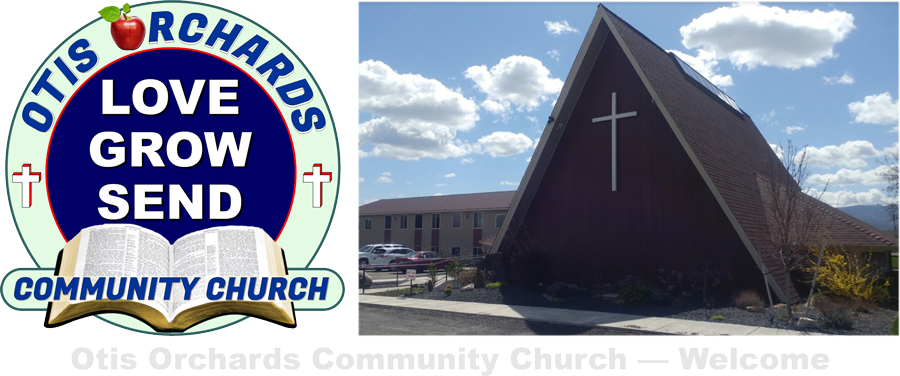
 |
|||||||
| RESOURCES — SHORT ARTICLES | |||||||
|
|
|||||||
 |
 |
 |
 |
 |
 |
| SHORT ARTICLES BY TOM ELSEROAD | |||||
| 2020-07-27 | Should I Ask For Forgiveness Since Christ Died For All My Sins? | ||||
|
This question only applies to someone who has
been born again by placing their faith in Christ alone. First the death of Jesus in our place as a substitute is the cancellation of all our sins (Cl.1:22) Col 1:22 in the body of His flesh through death, to present you holy, and blameless, and above reproach in His sight— This includes past (“I have been saved”, Ep.2:8) present (“I am being saved”, 1Co.1:18) and future (“I will be saved”, Ro.5:9) sins. Let's define what it means to have your sin forgiven. Psa 32:1 Blessed is he whose transgression is forgiven, Whose sin is covered. Psa 32:2 Blessed is the man to whom the LORD does not impute iniquity, And in whose spirit there is no deceit. 1. God is not counting sin against us. God is letting it go, which is forgiveness. 2. To be forgiven is to have sin covered. God is not attending to it as a ground of condemnation. Paul quotes from Psalm 32 in Romans 4:4-8 Rom 4:4 Now to him who works, the wages are not counted as grace but as debt. Rom 4:5 But to him who does not work but believes on Him who justifies the ungodly, his faith is accounted for righteousness, Rom 4:6 just as David also describes the blessedness of the man to whom God imputes righteousness apart from works: Rom 4:7 "BLESSED ARE THOSE WHOSE LAWLESS DEEDS ARE FORGIVEN, AND WHOSE SINS ARE COVERED; Rom 4:8 BLESSED IS THE MAN TO WHOM THE LORD SHALL NOT IMPUTE SIN." Through our faith in Christ, not our works, God counts us righteous (v.5). Here is the important thing. This is a once for all time event. This establishes our identity with God once for all. We do not drop in or out of justification. The declaration of our righteousness happens by faith when we are united to Christ (Ph.3:9) Php 3:9 and be found in Him, not having my own righteousness, which is from the law, but that which is through faith in Christ, the righteousness which is from God by faith; We have a righteousness that comes from God alone which is called imputation (He.10:16-18). Imputation is Christ's righteousness applied to us. The whole sacrificial system stops because Jesus' death covered all our sins so there is no need for a recurring sacrifice (Cl.2:14). Now, when we put our faith in Jesus this whole accomplishment becomes ours (Ac.10:43, “whoever believes in Him will receive remission of sins”). So back to our question, should we pray for forgiveness every time we sin as a Christian? What we have seen is that Christ covered all our sins. Then why would we pray for forgiveness? 1Jn 1:7 But if we walk in the light as He is in the light, we have fellowship with one another, and the blood of Jesus Christ His Son cleanses us from all sin. John says if we walk in the light the blood of Jesus cleanses us. What is walking in the light? See verse 8. 1Jn 1:8 If we say that we have no sin, we deceive ourselves, and the truth is not in us. So walking in the light cannot mean sinlessness. Walking in the light must mean that you are aware when you do sin. 1Jn 1:9 If we confess our sins, He is faithful and just to forgive us our sins and to cleanse us from all unrighteousness. He just said if you walk in the light you are cleansed from sin. Now he is saying if you confess your sins he will cleanse you from all unrighteousness. Confessing sins is a part of walking in the light. So the blood of Jesus continues to cleanse us from sin while we are walking in the light. Confessing means we admit it, and we do not want it. It is to tell the truth about our sin. When we do this we are walking with God in the light. “Confess” (Greek homologeo) means 'to say the same thing about your sin that God says about it'. To walk in the light is to recognize sin for what it is. And to confess it helps us learn not to do it again. How does John connect the blood of Jesus with our ongoing sin? He makes it clear our sins are forgiven once for all for His name's sake. But in 1 John we must walk in the light. Walking in the light means confessing, and not denying (1Jn.2:1). 1Jn 2:1 My little children, these things I write to you, so that you may not sin. And if anyone sins, we have an Advocate with the Father, Jesus Christ the righteous. So there is a heavenly and an earthly confession of our sin. We confess it here on earth and Jesus in heaven confesses it and applies His own blood to it. It is not literal blood in Heaven. We confess or say about our sin what God in heaven says about our sin. Jesus as our Advocate continues to take His finished work and applies it to us day by day. So should we pray for forgiveness of ongoing sins? Yes, if we mean acknowledging sin and being sorry for it. By confessing sin it helps us to see sin as God sees it with the view of not repeating it. Must we confess every sin? No. Because you cannot remember all of them. And you do not know them all (Ps.19:12-13). When we acknowledge sin for what it is, it can help us to learn to not do it again. Pastor Tom Elseroad |
|||||
| An Independent and Evangelical Church |
 |
23304 E Wellesley
Ave. Otis Orchards, WA 99027 Church Office: 509.926.9552 tomelseroad@gmail.com |